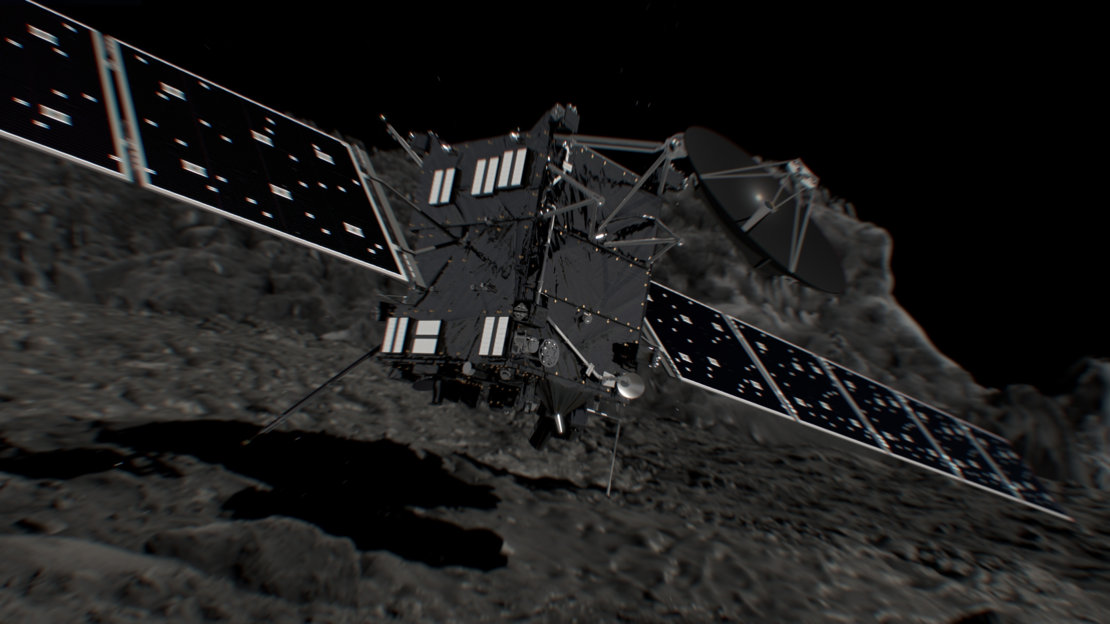On this day! Sept. 30, 2016: Rosetta spacecraft crashes into a comet
On Sept. 30, 2016, the European Space Agency's Rosetta spacecraft purposely crashed into a comet.
On Sept. 30, 2016, the European Space Agency's Rosetta spacecraft purposely crashed into a comet. Rosetta launched in 2004 and spent 10 years chasing down Comet 67P, a rubber-duck-shaped space rock that orbits the sun between Earth and Jupiter.
Rosetta spent the next two years tagging along with the comet as it traveled through the solar system. When it was time for the mission to end, Rosetta gently crashed into the comet.
On This Day in Space: See our full 365-day video archive!
Breaking space news, the latest updates on rocket launches, skywatching events and more!
Join our Space Forums to keep talking space on the latest missions, night sky and more! And if you have a news tip, correction or comment, let us know at: community@space.com.

Hanneke Weitering is a multimedia journalist in the Pacific Northwest reporting on the future of aviation at FutureFlight.aero and Aviation International News and was previously the Editor for Spaceflight and Astronomy news here at Space.com. As an editor with over 10 years of experience in science journalism she has previously written for Scholastic Classroom Magazines, MedPage Today and The Joint Institute for Computational Sciences at Oak Ridge National Laboratory. After studying physics at the University of Tennessee in her hometown of Knoxville, she earned her graduate degree in Science, Health and Environmental Reporting (SHERP) from New York University. Hanneke joined the Space.com team in 2016 as a staff writer and producer, covering topics including spaceflight and astronomy. She currently lives in Seattle, home of the Space Needle, with her cat and two snakes. In her spare time, Hanneke enjoys exploring the Rocky Mountains, basking in nature and looking for dark skies to gaze at the cosmos.
You must confirm your public display name before commenting
Please logout and then login again, you will then be prompted to enter your display name.

